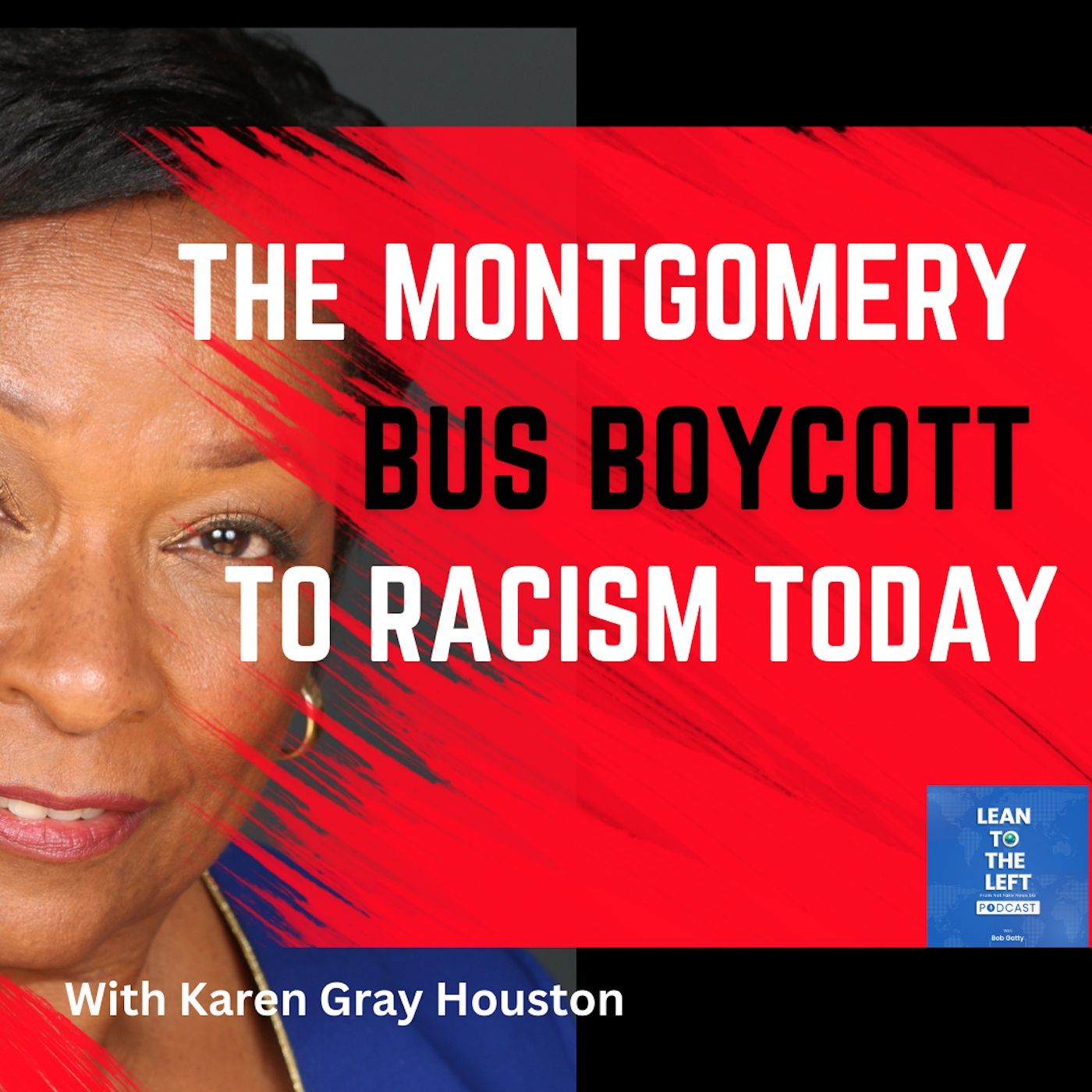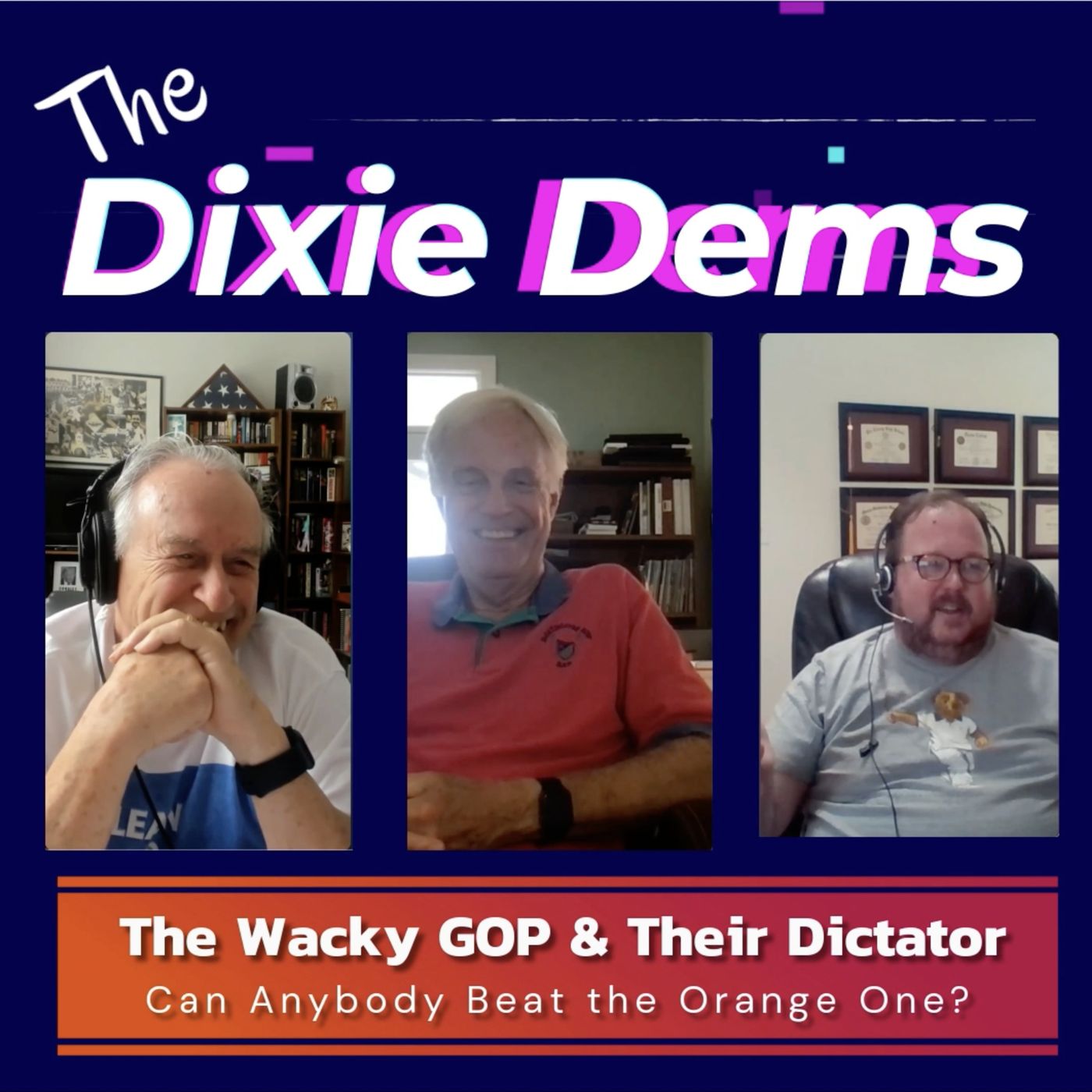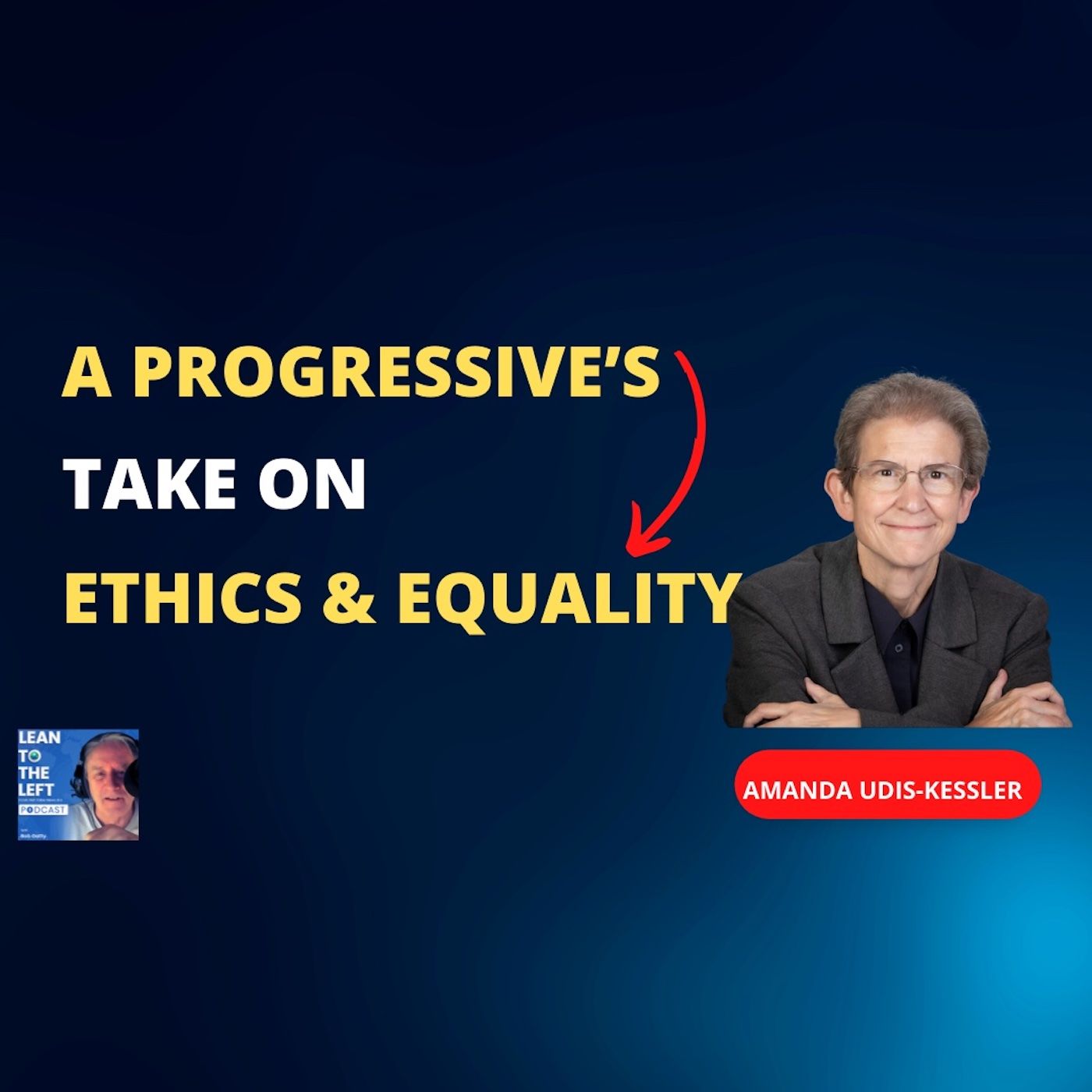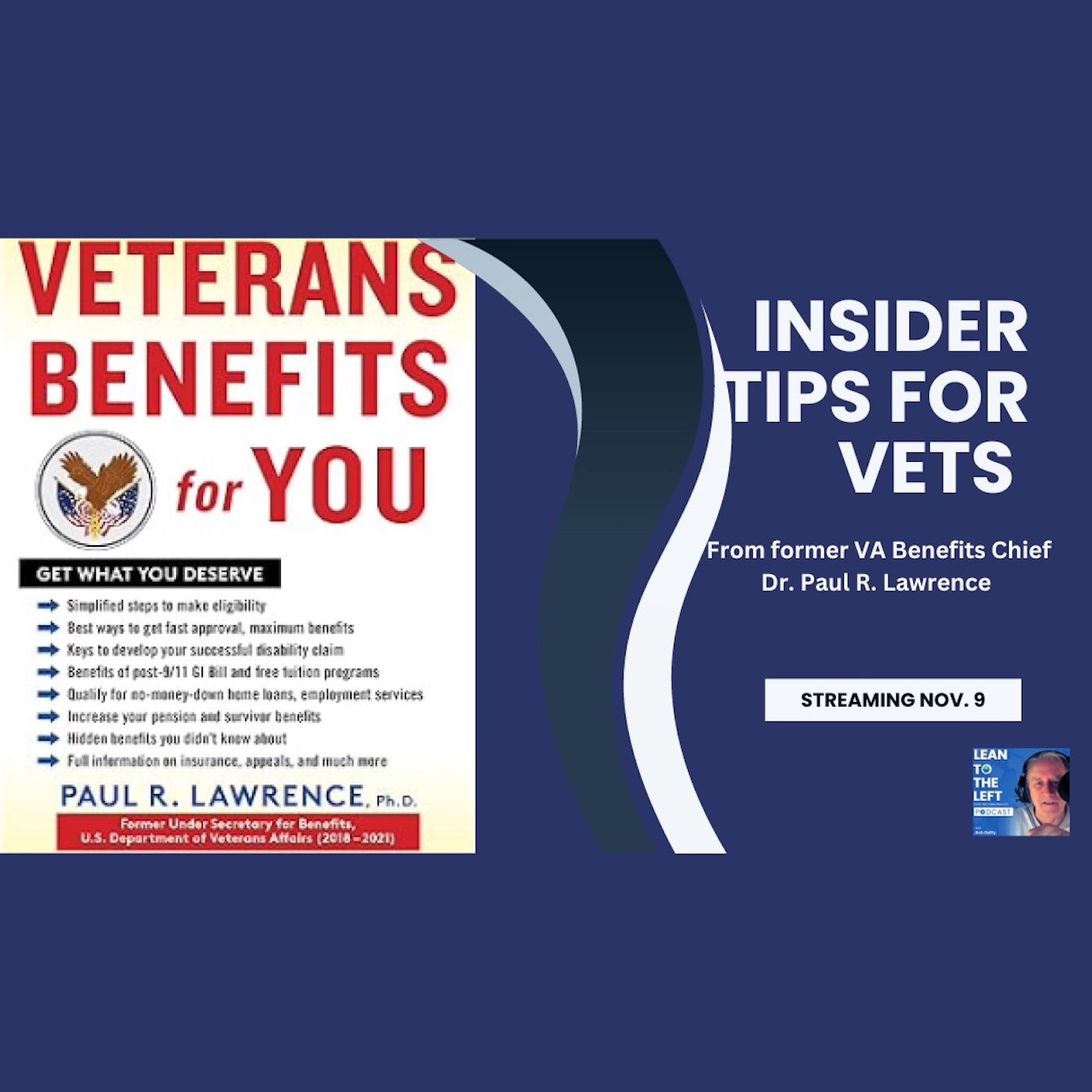In honor of Veterans Day on Nov. 11, our Lean to the Left podcast guest is Paul R. Lawrence, Ph.D, former Under Secretary for Benefits at the Veterans Administration. An Army veteran, Dr. Lawrence is the author of a new book, "Veterans Benefits for You," which provides updated information, including some insider tips, explaining how to maximize your veterans benefits.
A public sector vice president with Kaiser Associates, Dr. Lawrence helps business and government leaders make informed strategic and operational decisions by developing and implementing unique solutions. He has a long and distinguished career writing extensively about management and government, testifying before Congress and state legislatures, and was twice selected by Federal Computer Week as one of the top 100 public service business leaders.
We’re proud to present Dr. Lawrence and hope the information he provides will help veterans take advantage of the benefits and services to which they are entitled.
Some questions we discussed with Dr. Lawrence, who explains how to maximize your veterans benefits:
Q. You served in the Army and attained the rank of Captain after graduating from the Army’s Airborne School, and you received the Meritorious Service Medal. Tell us a little bit about your time in the Army.
Q. What prompted you to write this book?
Q. After the Army, you became a management consultant becoming a partner at Ernst & Young, a vice president with Accenture, executive director at the MITRE Corporation, vice president with IBM Business Consulting Services, and a partner at Pricewaterhouse Coopers. What did you do during your business career to help fellow employees who were veterans?
Q. You served as undersecretary for benefits in the VA for three years during the Trump administration. I’m sure that experience helped prepare you for this book about veterans benefits, right?
Q. Can you walk us through the key components of your book and how veterans can benefit from it?
Q. In your book’s introduction, you write that more than 3 million Americans have served in the military since 9/11. How did that event affect veterans and the services they need?
Q. What is your advice to veterans who are having difficulty obtaining the benefits they seek?
Q. You also are the author of “Transforming Service to Veterans,” which details your journey from a business executive to political appointee charged with providing benefits to veterans and implementing veteran-focused legislation. Tell us about that and why you wrote it.
Q. What’s your take on the VA and its service to veterans? Are changes needed, especially when it comes to medical care?
This show is part of the Spreaker Prime Network, if you are interested in advertising on this podcast, contact us at https://www.spreaker.com/show/4719048/advertisement
Show Notes
on’t forget to follow Lean to the Left at podcast.leantotheleft.net, and you can reach me at bob@leantotheleft.net. You can also follow us on social media…Facebook at The Lean to the Left Podcast. Twitter at LeantotheLeft1. YouTube at Lean to the Left, Instagram at BobGatty_leantotheleft, and TikTok at Lean to the Left.
If you would take a minute to give us a review, that would be great. There are lots of podcast links on our webpage, podcast.leantotheleft.net, where you’ll also find our upcoming interview schedule and links to all of our podcasts.
I hope you’ll come back on a regular basis and check out our interviews with guests on topics that I hope you find interesting, entertaining, and enlightening.
Our interview shows stream weekly on Mondays, and depending on what’s going on, also on Thursdays, and most are produced as videos available on the Lean to the Left YouTube channel.
Also, let your friends know about this podcast and take a minute to subscribe yourself. Just go to podcast.leantotheleft.net to subscribe, check out the upcoming interview schedule, and listen to all of our episodes.
Remember, our goal is to be informative and entertaining as we comment on the latest developments in the news…you guessed it…with just a little lean to the left.
This show is part of the Spreaker Prime Network, if you are interested in advertising on this podcast, contact us at https://www.spreaker.com/show/4719048/advertisement
Show Transcript
[00:00:00] Bob Gatty: In honor of Veterans Day and all of those who have served our country, we're presenting today Paul R. Lawrence, who has written a new book, Veterans Benefits for You. It's a terrific resource to help veterans get the benefits that they deserve. So stay with us.
[00:00:17] Now all veterans and their families deserve the maximum benefits that they earn by bravely serving our country.
[00:00:26] In his book, Paul R. Lawrence, former under Secretary of Benefits in the Department of Veterans Affairs, provides an up-to-date, comprehensive and accessible guide to all the benefits and services available to veterans of the U S armed forces and how to make the most of them. Paul is a public sector vice president with Kaiser associates, who helps business and government leaders make informed strategic and operational decisions by developing and implementing unique solutions.
[00:00:58] He has a long and distinguished career writing extensively about management and government, testifying before Congress and state legislatures, and was twice selected by Federal Computer Week as one of the top 100 public service business leaders. We're proud to present Dr. Lawrence today and hope the information he provides will help veterans take advantage of the benefits and services to which they're entitled.
[00:01:23] Dr. Lawrence, thanks for joining us today on our podcast.
[00:01:26] Paul Lawrence: Hey, thanks for having me, Bob. And more importantly, thanks for caring about our veterans.
[00:01:31] Bob Gatty: You know what? My dad was a chaplain in the army during Vietnam. He also served in Korea and he also served in World War II. So yeah, I have a particular affinity for veterans and one always want to do everything possible to be helpful. Cause it, it's personal to me.
[00:01:54] Paul Lawrence: Yeah. It sounds like your dad was a little bit older than mine. My father served in Korea and Vietnam. He was a career army officer and retired in like the mid seventies. So yeah.
[00:02:04] Bob Gatty: Yeah. My dad Was an enlisted man in World War Two.
[00:02:08] He was a a flight mechanic on bombers in over Okinawa, actually. Wow. And then when he came home, he eventually went into the chaplaincy. He became a minister. A Protestant minister and then eventually rejoined the army as a chaplain and served for more than 20 years.
[00:02:33] And retired as a colonel. And as I said, served in those three wars. So it's quite a remarkable achievement. So tell me this, you served in the Army and attained the rank of captain yourself after graduating from the Army's Airborne School and you received a meritorious service medal. Tell us a little bit about your time in the Army.
[00:02:59] Paul Lawrence: As I said, I grew up in a military family. My father was in the army. So that was a good indicator of what I might do. I joined ROTC. And after I graduated from undergraduate school and they delayed my commitment, I graduated from graduate school. I ended up fulfilling my commitment.
[00:03:15] So I spent three years in the army. After they find out I had degrees in economics, they thought I would be a finance officer. The joke was the army's bankers. And then once they found out, once they found out I actually had advanced degrees in economics, I went to a special office south of Richmond, where you did almost like consulting projects, studying how the military purchased things and how they might get more for their money. So my one real experience was going to airborne school, learning how to jump out of airplanes. But mostly I spent my three years in an office, conducting studies. And, I was thinking about joining, making it a career, but I met the woman I eventually married and she said this is interesting, but I'm really not interested in being an army wife.
[00:03:53] So I thought. Good time to leave the army. So that was my signal.
[00:03:57] Bob Gatty: That's pretty good.
[00:03:59] Paul Lawrence: As your father might have said, God speaks to us in strange ways. And that was it.
[00:04:04] Bob Gatty: Yeah, that's for sure. I get that. You know what? It's odd that you you ended up going to jump school and doing that because I signed up to do the very same thing.
[00:04:14] And on the day that I was supposed to leave Pittsburgh to I was on this bus and I was to go and take the oath and I was going to be shipped off the basic training and eventually go to, jump school and aerial photography school.
[00:04:30] And of course, this was back in, in during the Vietnam era. They came out, somebody came out and took me off the bus and they had discovered that as a kid, I had asthma. And so I was kicked out. I was never allowed to join, but I was still 1A for the draft, which totally toasted me. Yeah. Yeah, but anyhow, that was my limited experience.
[00:04:56] Paul Lawrence: You're almost there, so it almost counts.
[00:04:58] Bob Gatty: Almost, but you know what, the jump school thing, I always wanted to do that.
[00:05:02] Paul Lawrence: Yeah, it's a shame because it is the best training. I know a bunch of friends who, you know, doing parachute qualified and civilian but it's nothing like what you go through in the military.
[00:05:11] I'm some years removed, I can still remember the stuff they taught me there.
[00:05:15] Bob Gatty: I betcha. Did you like doing jumps like that?
[00:05:18] Paul Lawrence: I don't know. So I thought, ironically, it would cure me of my fear of heights, but it did not. Yeah, it's pretty heady stuff. I think you would have found it as a, internal test of your own kind of discipline to be able to do stuff like that.
[00:05:33] But once you have army training. You're just conditioned to do what the things are. Do you know what I'm saying? They open the door and the next thing you know, you're going out and you're not thinking about it at all. It's just how it happens,
[00:05:43] Bob Gatty: and so you're floating down and you're going, what the hell did I do, right?
[00:05:48] Paul Lawrence: Yeah. No, actually you're doing things to make sure you're going to get down there. Okay. They've trained you what to do. They trained you how you should be looking around. So you really, you don't really get the chance to look around and do much.
[00:05:58] Bob Gatty: Okay. Tell me this. Why'd you write this book to begin with?
[00:06:01] Paul Lawrence: So when I was Undersecretary of Benefits at the VA, like you indicated in the intro, I used to get a lot of questions from veterans about their benefits. So I learned how the benefits were processed because those are the people I was in charge of. But I used to get lots of questions. I don't understand all my benefits.
[00:06:16] They're hard to explain to me. I didn't know how to get them. How do I access them? So when I got out, I wanted to see if there was a book about this that could explain all the benefits in easy to read kind of format. And there really wasn't. And the books that were there... Covered subsets of the benefits and, many of them written by lawyers and we love them to death, but sometimes they write things that are really hard to understand.
[00:06:37] So I set out to answer all the questions I had heard and really to try to make it easy to read and comprehensive.
[00:06:43] Bob Gatty: Okay I think you achieved your goal. I've gone through your book and it's nicely laid out. By topic and it should be easy for people to follow and very useful. I worked on Capitol Hill back in the seventies and we would get a lot of questions from veterans looking for help.
[00:07:04] And I wish this book would have been available then. And if you haven't made it available to members of Congress for their caseworkers to use, I would suggest you do that. Thank you.
[00:07:17] Paul Lawrence: That's a good suggestion. Yeah.
[00:07:19] Bob Gatty: Yeah. After the army, you became a management consultant. You became a partner at Ernst Young, a VP with Accenture, executive director at the Mitre Corporation, VP with IBM Business Consulting, and a partner at PricewaterhouseCoopers.
[00:07:36] Now, either of that says you can't hold a job. oR that you're really good at what you do. So tell me, what did you do during your business career to help your fellow veterans, your fellow employees who were veterans?
[00:07:51] Paul Lawrence: Sure. In each of those organizations, and actually it's pretty funny you mentioned that, because I thought that, and this is a story about my confirmation, that when the senators heard that description you gave of the different jobs, they would think, Wow.
[00:08:03] Look at those great jobs. Think about all the experience and all the wisdom this person will bring to this position. But actually one of them came up to me and said exactly that you're the guy who can't hold the job. So I realized you got to be careful when you share your thing. In each organization I was in, we, I would find the veterans groups and champion their cause, organize, try to get them to do stuff.
[00:08:24] And, a long time ago, it was not. All that, topical to have veterans groups more recently since 2001. I think it is. So it was just a matter of finding and organizing veterans and championing their causes.
[00:08:36] Bob Gatty: Okay. Now you served, we talked about the fact that you served as undersecretary for benefits at the VA for three years during the Trump administration. How did that experience prepare you for this book? Now you mentioned that you've you realize that there wasn't really a book there available to do this. So I guess that's the reason why you did it.
[00:08:59] Paul Lawrence: And also as undersecretary, I had the unique experience of learning how the benefits are actually processed, right? Since I was in charge of getting these benefits out and did that. And so it was really eye opening to really appreciate. Oh, this is how the system actually works. And so now, when I see people writing about benefits from time to time, sometimes I get frustrated because they're not exactly accurate.
[00:09:21] So I want to correct a lot of that information to and explain and then some of the tips from inside that if you do certain things, your claims will be easier to read, easier to approve and stuff like that. So it was really designed to, take a little bit of the inside baseball I'd seen and share that as well.
[00:09:37] Bob Gatty: Okay, Paul, can you walk us through some of the key components of your book and how veterans can benefit from it? Sure.
[00:09:44] Paul Lawrence: So the three broad parts, really, first part is like the first chapter is about eligibility, because a lot of folks don't know if they are in fact veterans. This was one of the things that surprised me.
[00:09:53] People say, am I a veteran? I didn't serve in combat. I didn't do anything. So there's a lot of discussion about some of the technicalities about being a veteran, especially if you served in like the National Guard and Reserve, there's some rules and details that got to be explained. The book is each of the different benefits veterans are eligible for if they've served honorably.
[00:10:12] From disability compensation all the way through insurance and things like that. So I'd go through each one and explain it. And then there's appendices about where you can get no cost help with your application for benefits. So it's really important veterans know there are people trained who work in organizations like the American Legion and Wounded Warrior Project, who could help you with your benefits and also your state, as well as there are benefits each state provides that veterans. So I really put it in three parts.
[00:10:39] Bob Gatty: Okay that's great. Now in your book's intro, you write that more than 3 million Americans have served in the military since 9 11. How did that event affect veterans and the services that they need?
[00:10:55] Paul Lawrence: A couple ways.
[00:10:56] So I think the newer generation of veterans, the post 9 11 men and women, I think they were more demanding on the VA. They had higher expectations about how fast and how quickly things should be done, so that played its way out in a bunch of changes. Right? The GI Bill was modernized, has been modernized several times since 2001 to reflect, the new education kind of approach people are doing, reflects internships, reflects stem, reflects all these things.
[00:11:26] But also I think veterans now, their need for assistance is different than it was back in the day, it seems to me we're spending a lot more time understanding mental health. And that's really opened the aperture. And I don't know whether it's because those needs always existed before, but we didn't understand mental health and now we do. I think it's some of that, but also I think that's one of the things I really saw a lot of attention to mental health related
[00:11:50] Bob Gatty: issues. Okay. What's your advice to veterans who are having trouble, obtaining the benefits that they seek? Yeah
[00:11:59] Paul Lawrence: a couple things, right? First, when you go into the process, you should have a service officer help you, right?
[00:12:04] These are the people I described a second ago, no cost assistance, because sometimes filling out the forms is really tedious, and Get somebody who's been doing a lot to do that. So make sure you...
[00:12:13] Bob Gatty: Who are these service officers you're talking about?
[00:12:15] Paul Lawrence: They're men and women who've been trained to understand the VA processes. So it's just the job, right?
[00:12:21] Bob Gatty: These people work at the VA, right?
[00:12:23] Paul Lawrence: No. So they, they could either work at American Legion and Wounded Warrior Project or DAV. So they're employees of that, or they could work at your state. So the South Carolina Department of Veterans Affairs, for example, and some states even have them at a county level. So they're service officers. So they know the forms and they know the process. So you should definitely get help there. Okay. But say you do that perfectly and you get denied or you get, you don't get the level of benefit you think you deserve. VA has a new process in my book, which I describe a new process would describe my book about how you can appeal.
[00:12:58] You can appeal any decision VA made and unlike before we had to wait years where he went before a judge. There's now some expedited ways to do that and I described those in the book. So you can always appeal if you are not happy.
[00:13:11] Bob Gatty: Okay, now as I said that when I worked on Capitol Hill back in the 70s I, I can't believe it's not the same today that those offices work to help their constituents with all manner of federal programs, including veteran benefits, right? Do you advise people to contact their congressman and look for help there? Or do you feel there are better ways to do that?
[00:13:40] Paul Lawrence: Yeah, this is a tough call because sometimes the processes of that have been laid out that I just described and I described in the book, are supposed to work.
[00:13:48] Okay. You're supposed to be able to, and with assistance you can get whatever. Okay. Sometimes people grow frustrated for a variety of reasons and they do contact their congressman or woman. And even when I was there, it hadn't changed a whole lot. Bob, it sounds like. Everybody had like someone who dealt with constituent issues related to veterans.
[00:14:06] And inevitably they would make their way back to the VA. People would look at it, research it, and try to figure it out. Okay. So it's certainly an avenue. It doesn't cost anything. It may help you get something figured out that nobody quite understands. Often these were just unique situations that sometimes the rules didn't.
[00:14:23] But then the other sort of thing, Bob, is, when you adjudicate benefits, sometimes you say no to people. They are not eligible no matter just the situation. So some of those folks, don't want to listen to "no" and they do turn to their congressperson to think that they can somehow override the decision.
[00:14:39] But yeah,
[00:14:40] Bob Gatty: yeah. That's the mistaken idea that some people I think have that the congressperson can wield some kind of influence to get VA to change their mind. Yeah, it really doesn't happen.
[00:14:54] Paul Lawrence: No, they really don't. They can ask for clarification. They can ask for explanation. They can say, is there anything else you can do to help this person?
[00:15:01] Maybe there's an exception somewhere, but generally, that's all been taken care of, but they are pretty good, especially their good timeliness and the like. So I tell people if that's what you're comfortable doing, I remember one talking to a veteran and I say. He said, listen, I'm so darn mad at you guys.
[00:15:16] I'm going to call the White House and try to speak to the president. And I said you can, but he's just going to send me an email and ask me to resolve the problem. So just tell it to me now and let's see if we can't figure it out, so that's how it works. But I encourage people, accessing government at all levels, if that's what they think they want to do.
[00:15:32] Bob Gatty: Okay, now you're also the author of transforming service to veterans. So tell us about that book and why you wrote it.
[00:15:39] Oh yeah, sure.
[00:15:39] Paul Lawrence: So that was the book I wrote based on my experience as Undersecretary. Since I had been, as you talked earlier, a longtime consultant to government and I had talked to leaders in government before and dealt with being at the VA, it was the only time I ever was in government. So I wrote about what the journey was, how I became Undersecretary, and then what I did while I was there to work on improving the service to veterans.
[00:16:01] Because part of what I did was really focusing on getting benefits to veterans faster and quicker than ever before. Made some changes, dealt with some stuff, introduced some new things, and even what it was like to experience this at the beginning of the pandemic in 2020. So I wrote about essentially my journey and I tried to focus in on the management activities and quite frankly, some of the accomplishments the team did while I was there.
[00:16:25] Okay
[00:16:26] Bob Gatty: that's great. What's your take on the VA and its service to veterans today? Do you feel like there are changes needed? Maybe especially when it comes to medical care, you might address that.
[00:16:36] Paul Lawrence: Yeah it's, it could. You can always be improved, right? And here's my perspective, Bob.
[00:16:42] If you think about it, we ask folks to enlist in the military and we say, go off and give us the very best military in the world. Then they come back and we tell them, Hey, now here's the VA. And we're happy if it's okay or pretty good, but we never have a conversation about how about we have a world class VA where you get your benefits super fast and the care is really good and excellent.
[00:17:03] And I think by that standard. It comes up short, and there's so much
[00:17:07] Bob Gatty: more to be done.
[00:17:09] Do you feel like there are legislative changes laws, or something Congress should do?
[00:17:14] Paul Lawrence: If you ask me a couple things Congress could do, yeah, there's some laws that could streamline some things. For example, there's multiple versions of the GI Bill, which makes processing the GI Bill very difficult.
[00:17:25] If that's somehow we're rationalized. There's only one version of the GI Bill. That would be a great benefit, right? But really, I think the challenge to Congress is to hold VA accountable and actually say stuff like come up here and tell us how long is it taking a veteran to get an appointment for mental health?
[00:17:41] How long is it taking for them to get their claim process? And if it's not fast enough, what are you gonna do to fix it? And oh, by the way, If we're unhappy with you as Congress people, we can do certain things to get you to pay much more attention to us. So I would encourage more oversight and more,
[00:17:57] Bob Gatty: more accountability.
[00:17:59] Okay. You mentioned mental health. Is there more that needs to be done with respect to that at the VA? Of course,
[00:18:07] Paul Lawrence: there's this, as I understand it, and I'm not a medical doctor, right? There's a shortage of mental health professionals in the United States as a whole. So it's very difficult.
[00:18:15] But obviously, folks who are struggling with mental health need access to professionals very quickly. To be told, wait 60 days before we can get you an appointment is really a problem. Obviously yeah. Yeah, some expedited assistance as well as continued research into what works right.
[00:18:32] I think we're going through a period of time where, we're no longer hopefully just giving people drugs. There are other therapies. There are other ideas. I'm hoping that those are being figured out and used as opposed to simply providing people drugs.
[00:18:46] Bob Gatty: Okay, where can people find your books and how can they reach out to you if they want to do
[00:18:51] Paul Lawrence: that?
[00:18:51] Sure, so the book is available on Amazon, okay, so you can get it there. And I, my social media presence is on LinkedIn, so you can look for me, Paul Lawrence on LinkedIn, that's how you can see me. And I try regularly to post about veterans issues, some of the topics we're talking about, so they can see that content as well.
[00:19:08] Bob Gatty: Okay, now Paul, is there anything that we haven't covered that you would like to do?
[00:19:13] Paul Lawrence: onE quick thing about benefits, and I know we didn't drill on this real hard, but a lot of veterans think about benefits, and they go, no, I'm okay, I'm fine, I don't need them, but they forget that under certain circumstances, if something happens to you because of your service, Your family can get benefits.
[00:19:29] So my encouragement to all veterans is think about your situation, not just for you, but for your family. So look at it that way. And I think that's a perspective I want to make sure they understand.
[00:19:40] Bob Gatty: Okay. Very good. Thank you very much. If that's all you've got, that's all I've got.
[00:19:47] Paul Lawrence: I'm following my host, so thank you so much, Bob. .
Listen On
Also In Season 3
-

Riding the Rails to Victory
In 1836, William Henry Harrison was the first presidential candidate to campaign -

Has There Been Progress on Racism Since the Montgomery Bus Boycott?
It was 73 years ago in 1950 that a Black man named Hillard Brooks was shot and k -

Dixie Dems: The Wacky GOP & Their Dictator
Despite the fact that Donald Trump is facing multiple court cases, including cri -

Amanda Kessler-A Progressive's Take on Ethics & Equality
Welcome to the Lean to the Left podcast, where we explore progressive politics a


Comments & Upvotes